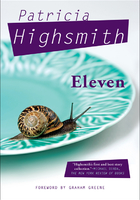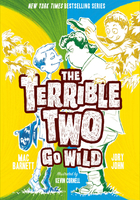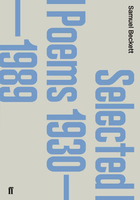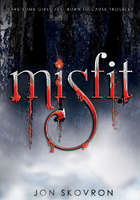"Yes, this was Katusha."
The relations between Nekhludoff and Katusha had been the following:
Nekhludoff first saw Katusha when he was a student in his third year at the University, and was preparing an essay on land tenure during the summer vacation, which he passed with his aunts. Until then he had always lived, in summer, with his mother and sister on his mother's large estate near Moscow. But that year his sister had married, and his mother had gone abroad to a watering-place, and he, having his essay to write, resolved to spend the summer with his aunts. It was very quiet in their secluded estate and there was nothing to distract his mind; his aunts loved their nephew and heir very tenderly, and he, too, was fond of them and of their simple, old-fashioned life.
During that summer on his aunts' estate, Nekhludoff passed through that blissful state of existence when a young man for the first time, without guidance from any one outside, realises all the beauty and significance of life, and the importance of the task allotted in it to man; when he grasps the possibility of unlimited advance towards perfection for one's self and for all the world, and gives himself to this task, not only hopefully, but with full conviction of attaining to the perfection he imagines. In that year, while still at the University, he had read Spencer's Social Statics, and Spencer's views on landholding especially impressed him, as he himself was heir to large estates. His father had not been rich, but his mother had received 10,000 acres of land for her dowry. At that time he fully realised all the cruelty and injustice of private property in land, and being one of those to whom a sacrifice to the demands of conscience gives the highest spiritual enjoyment, he decided not to retain property rights, but to give up to the peasant labourers the land he had inherited from his father. It was on this land question he wrote his essay.
He arranged his life on his aunts' estate in the following manner. He got up very early, sometimes at three o'clock, and before sunrise went through the morning mists to bathe in the river, under the hill. He returned while the dew still lay on the grass and the flowers. Sometimes, having finished his coffee, he sat down with his books of reference and his papers to write his essay, but very often, instead of reading or writing, he left home again, and wandered through the fields and the woods. Before dinner he lay down and slept somewhere in the garden. At dinner he amused and entertained his aunts with his bright spirits, then he rode on horseback or went for a row on the river, and in the evening he again worked at his essay, or sat reading or playing patience with his aunts.
His joy in life was so great that it agitated him, and kept him awake many a night, especially when it was moonlight, so that instead of sleeping he wandered about in the garden till dawn, alone with his dreams and fancies.
And so, peacefully and happily, he lived through the first month of his stay with his aunts, taking no particular notice of their half-ward, half-servant, the black-eyed, quick-footed Katusha. Then, at the age of nineteen, Nekhludoff, brought up under his mother's wing, was still quite pure. If a woman figured in his dreams at all it was only as a wife. All the other women, who, according to his ideas he could not marry, were not women for him, but human beings.
But on Ascension Day that summer, a neighbour of his aunts', and her family, consisting of two young daughters, a schoolboy, and a young artist of peasant origin who was staying with them, came to spend the day. After tea they all went to play in the meadow in front of the house, where the grass had already been mown. They played at the game of gorelki, and Katusha joined them. Running about and changing partners several times, Nekhludoff caught Katusha, and she became his partner. Up to this time he had liked Katusha's looks, but the possibility of any nearer relations with her had never entered his mind.
"Impossible to catch those two," said the merry young artist, whose turn it was to catch, and who could run very fast with his short, muscular legs.
"You! And not catch us?" said Katusha.
"One, two, three," and the artist clapped his hands. Katusha, hardly restraining her laughter, changed places with Nekhludoff, behind the artist's back, and pressing his large hand with her little rough one, and rustling with her starched petticoat, ran to the left. Nekhludoff ran fast to the right, trying to escape from the artist, but when he looked round he saw the artist running after Katusha, who kept well ahead, her firm young legs moving rapidly. There was a lilac bush in front of them, and Katusha made a sign with her head to Nekhludoff to join her behind it, for if they once clasped hands again they were safe from their pursuer, that being a rule of the game. He understood the sign, and ran behind the bush, but he did not know that there was a small ditch overgrown with nettles there. He stumbled and fell into the nettles, already wet with dew, stinging his bands, but rose immediately, laughing at his mishap.
Katusha, with her eyes black as sloes, her face radiant with joy, was flying towards him, and they caught hold of each other's hands.
"Got stung, I daresay?" she said, arranging her hair with her free hand, breathing fast and looking straight up at him with a glad, pleasant smile.
"I did not know there was a ditch here," he answered, smiling also, and keeping her hand in his. She drew nearer to him, and he himself, not knowing how it happened, stooped towards her. She did not move away, and he pressed her hand tight and kissed her on the lips.
"There! You've done it!" she said; and, freeing her hand with a swift movement, ran away from him. Then, breaking two branches of white lilac from which the blossoms were already falling, she began fanning her hot face with them; then, with her head turned back to him, she walked away, swaying her arms briskly in front of her, and joined the other players.
After this there grew up between Nekhludoff and Katusha those peculiar relations which often exist between a pure young man and girl who are attracted to each other.
When Katusha came into the room, or even when he saw her white apron from afar, everything brightened up in Nekhludoff's eyes, as when the sun appears everything becomes more interesting, more joyful, more important. The whole of life seemed full of gladness. And she felt the same. But it was not only Katusha's presence that had this effect on Nekhludoff. The mere thought that Katusha existed (and for her that Nekhludoff existed) had this effect.
When he received an unpleasant letter from his mother, or could not get on with his essay, or felt the unreasoning sadness that young people are often subject to, he had only to remember Katusha and that he should see her, and it all vanished. Katusha had much work to do in the house, but she managed to get a little leisure for reading, and Nekhludoff gave her Dostoievsky and Tourgeneff (whom he had just read himself) to read. She liked Tourgeneff's Lull best. They had talks at moments snatched when meeting in the passage, on the veranda, or the yard, and sometimes in the room of his aunts' old servant, Matrona Pavlovna, with whom he sometimes used to drink tea, and where Katusha used to work.
These talks in Matrona Pavlovna's presence were the pleasantest. When they were alone it was worse. Their eyes at once began to say something very different and far more important than what their mouths uttered. Their lips puckered, and they felt a kind of dread of something that made them part quickly. These relations continued between Nekhludoff and Katusha during the whole time of his first visit to his aunts'. They noticed it, and became frightened, and even wrote to Princess Elena Ivanovna, Nekhludoff's mother. His aunt, Mary Ivanovna, was afraid Dmitri would form an intimacy with Katusha; but her fears were groundless, for Nekhludoff, himself hardly conscious of it, loved Katusha, loved her as the pure love, and therein lay his safety--his and hers. He not only did not feel any desire to possess her, but the very thought of it filled him with horror. The fears of the more poetical Sophia Ivanovna, that Dmitri, with his thoroughgoing, resolute character, having fallen in love with a girl, might make up his mind to marry her, without considering either her birth or her station, had more ground.
Had Nekhludoff at that time been conscious of his love for Katusha, and especially if he had been told that he could on no account join his life with that of a girl in her position, it might have easily happened that, with his usual straight- forwardness, he would have come to the conclusion that there could be no possible reason for him not to marry any girl whatever, as long as he loved her. But his aunts did not mention their fears to him; and, when he left, he was still unconscious of his love for Katusha. He was sure that what he felt for Katusha was only one of the manifestations of the joy of life that filled his whole being, and that this sweet, merry little girl shared this joy with him. Yet, when he was going away, and Katusha stood with his aunts in the porch, and looked after him, her dark, slightly-squinting eyes filled with tears, he felt, after all, that he was leaving something beautiful, precious, something which would never reoccur. And he grew very sad.
"Good-bye, Katusha," he said, looking across Sophia Ivanovna's cap as he was getting into the trap. "Thank you for everything."
"Good-bye, Dmitri Ivanovitch," she said, with her pleasant, tender voice, keeping back the tears that filled her eyes--and ran away into the hall, where she could cry in peace.













